Professional Courses
Industry-relevant training in Business, Technology, and Design
Categories
Interactive Games
Fun games to boost memory, math, typing, and English skills
Typing
Memory
Math
English Adventures
Knowledge
JEE Advanced Syllabus: Subject-Wise Topics, Weightage, and Best Books
JEE Advanced Syllabus: Subject-Wise Topics, Weightage, and Best Books
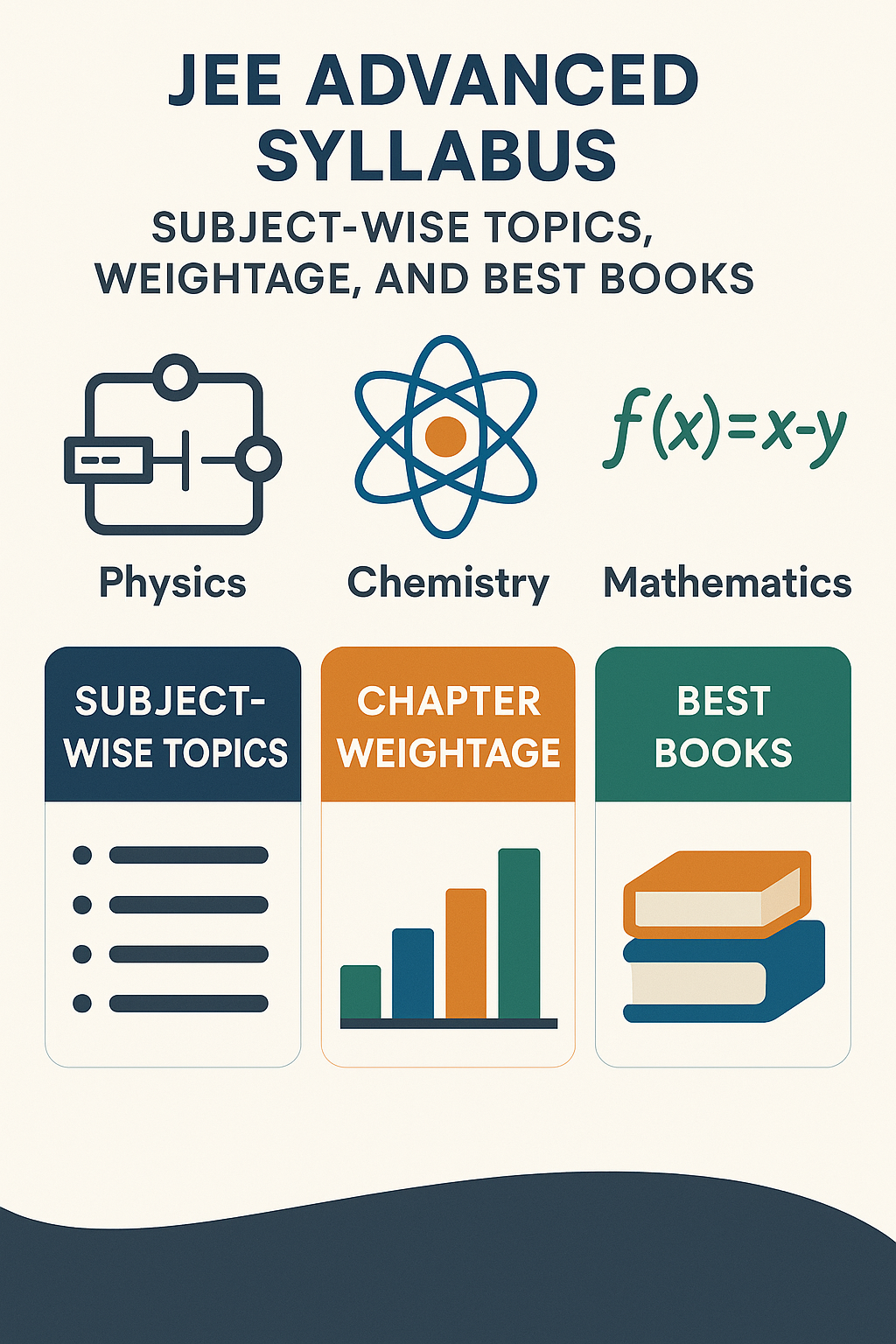
For every IIT aspirant, JEE Advanced is the most important exam of their life. It is the gateway to the Indian Institutes of Technology, the top engineering colleges in the country. Students across India prepare for years to get into these institutes, and the final challenge they face is the JEE Advanced exam. If you are planning to appear, the first thing you must understand is the JEE Advanced syllabus. Without knowing the syllabus, it is impossible to prepare in the right way.
In this article, we will explore the JEE Advanced syllabus in detail. You will understand which subjects are included, which topics carry more weightage, and what books are considered the best for preparation. We will also discuss preparation strategies that can help you crack the exam.
What is JEE Advanced?
JEE Advanced is the second stage of the Joint Entrance Examination. Only the top candidates who qualify JEE Main can appear for JEE Advanced. The exam is designed to test not just your memory but also your ability to apply concepts, solve complex problems, and think logically. It is often considered one of the toughest entrance exams in the world.
The exam is conducted online and consists of two papers. Both papers are compulsory, and the questions come from Physics, Chemistry, and Mathematics. There are no fixed marks per subject, but each section carries significant weightage.
If you are in school, you should know that your board preparation also supports your JEE journey. A strong foundation in your school curriculum, whether it is CBSE, ICSE, or IB, makes JEE Advanced preparation easier. Students who start building concepts in Class 8, Class 9, and Class 10 often find themselves more confident when they reach Class 11 and 12.
JEE Advanced At a Glance
- Full Form: Joint Entrance Examination Advanced
- Conducting Authority: One of the IITs on a rotational basis under the Joint Admission Board (JAB)
- Purpose: Entrance test for admission to IITs and some other top institutes
- Eligibility: Top 2.5 lakh JEE Main qualifiers, with category-wise cutoffs
- Mode of Exam: Computer-based test (CBT)
- Frequency: Once a year, usually in May/June
- Duration: Two papers of 3 hours each (both compulsory)
- Subjects Covered: Physics, Chemistry, Mathematics
- Language: English and Hindi
- Marking Scheme: Varies (includes full, partial, and negative marking)
- Difficulty Level: Considered one of the toughest entrance exams in the world
- Admission Scope: IITs, IISc, and some other centrally funded institutions
JEE Advanced Subjects
The JEE Advanced syllabus is built around three core subjects: Physics, Chemistry, and Mathematics. Each subject is equally important and contributes to your overall score. Within each subject, there are topics that have historically carried more weightage in the exam. While you should not skip any topic, understanding which areas are more frequently tested will help you prioritize your study time better.
JEE Advanced Syllabus: Physics
Physics in JEE Advanced is often considered challenging because it requires both conceptual clarity and numerical problem-solving ability. The syllabus covers the fundamentals of mechanics, thermodynamics, electricity, magnetism, optics, and modern physics.
Mechanics forms the base of physics and usually carries a large portion of the weightage. Topics such as laws of motion, work, energy, power, rotational motion, and gravitation frequently appear in the exam.
Electricity and magnetism are also extremely important, especially concepts like current electricity, electromagnetic induction, alternating current, and magnetic effects of current.
Students often find optics, both ray optics and wave optics, to be scoring if they practice enough problems. Thermodynamics, oscillations, and waves are also key areas. In the later part of the syllabus, modern physics, including atoms, nuclei, the photoelectric effect, and semiconductors, has been gaining importance in recent years.
To prepare well for Physics, students should aim to first strengthen their conceptual understanding. Once the basics are clear, solving a wide range of problems helps in applying those concepts. A student who regularly practices problems from past years can identify patterns and learn how different concepts are tested in the exam.
JEE Advanced Syllabus: Chemistry
Chemistry is often called the most balanced subject in JEE Advanced because it contains theory-based questions as well as problem-solving. The subject is divided into three parts: Physical Chemistry, Organic Chemistry, and Inorganic Chemistry.
Physical Chemistry covers areas such as atomic structure, thermodynamics, equilibrium, electrochemistry, and chemical kinetics. These chapters involve calculations and problem-solving, so students need to practice numerical problems to gain speed.
Organic Chemistry, on the other hand, is more about reactions, mechanisms, and logical application of concepts. Important areas include hydrocarbons, aldehydes, ketones, amines, biomolecules, and polymers.
Inorganic Chemistry focuses on the periodic table, chemical bonding, coordination compounds, metallurgy, and the properties of elements. Many questions in this section can be answered directly if you have studied NCERT carefully.
Students often find Chemistry scoring because a number of questions come directly from standard textbooks. If you revise formulas, reactions, and exceptions regularly, you can perform very well in this subject.
JEE Advanced Syllabus: Mathematics
Mathematics is usually the most scoring subject for students who practice consistently. The JEE Advanced syllabus for Mathematics covers algebra, calculus, geometry, probability, and trigonometry.
Algebra includes topics like quadratic equations, matrices, determinants, complex numbers, and the binomial theorem. These chapters are often asked in the exam and require strong problem-solving skills.
Calculus is one of the most important sections and includes limits, continuity, differentiability, integration, and differential equations. Geometry covers both two-dimensional coordinate geometry and three-dimensional geometry, along with vector algebra.
Probability and statistics also carry weightage and can be scoring if practiced well. Trigonometry, while usually smaller in terms of direct weightage, often supports problems from other chapters.
For Mathematics, practice is the most important. The more problems you solve, the better you become at managing time during the exam. Many toppers recommend daily practice and regular mock tests to sharpen problem-solving speed.
JEE Advanced Exam Pattern and Syllabus Style
One important point students should know is that the JEE Advanced does not officially announce chapter-wise weightage. The questions are designed to test understanding across the entire syllabus of Classes 11 and 12. This means you should not skip chapters on the assumption that they are less important. However, by analysing past year papers, students can see which areas appear more frequently and prepare accordingly.
The exam consists of two papers, both compulsory, and both conducted online. The question types vary and include multiple-choice, numerical-based, and match-the-following questions. The marking scheme also changes from year to year. That is why mock tests are very useful because they help you adapt to different patterns.
Best Books for JEE Advanced Preparation
Selecting the right books is crucial for preparation. For Physics, the most highly recommended book is H.C. Verma’s Concepts of Physics, which explains concepts in a simple and clear manner. Many students also practice from I.E. Irodov’s Problems in General Physics, which is known for its challenging questions. For theory and problem practice, Fundamentals of Physics by Halliday, Resnick, and Walker is also useful.
In Chemistry, NCERT textbooks are considered the foundation. For deeper preparation, students often use O.P. Tandon for Physical Chemistry, Morrison and Boyd for Organic Chemistry, and J.D. Lee for Inorganic Chemistry. Each of these books provides a different level of detail that matches the needs of JEE Advanced.
For Mathematics, R.D. Sharma is good for building basics. For advanced practice, M.L. Khanna’s IIT Mathematics and the Cengage series are widely used. Students looking to improve their calculus can use I.A. Maron’s book on Calculus.
A common question among aspirants is whether H.C. Verma alone is enough for JEE Advanced. The answer is that it is enough for building concepts but not for full preparation. You need to supplement it with advanced books and problem sets. Similarly, the Cengage series is detailed and complete, and many students rely on it for covering the entire JEE Advanced syllabus.
How to Prepare for the JEE Advanced Syllabus
Preparation for JEE Advanced requires discipline and consistency. If you are in Class 11 or Class 12, you should focus on building strong fundamentals from your NCERT books first. After that, you can move to advanced reference books and practice problems regularly.
It is important to create a study schedule that balances all three subjects. Many students make the mistake of focusing only on one subject, which reduces their overall score. Revising regularly is also necessary. Physics formulas, Chemistry reactions, and Mathematics theorems should be revised weekly.
Mock tests and past year papers are extremely helpful. They give you a clear understanding of the type of questions asked and improve your time management. Since the exam is computer-based, practicing online mock tests will also make you comfortable with the exam interface.
If you are still in Class 8, 9, or 10, you should not wait until the last two years. Building a strong base in school subjects will help a lot later. You can explore AllRounder.ai’s grade-specific courses such as Class 8, Class 9, and Class 10 to start early preparation in a structured way.
During preparation, you should also take breaks. Playing educational games on AllRounder.ai can refresh your mind while keeping you engaged in learning.
Why Knowing the JEE Advanced Syllabus Matters
Many students waste time studying unnecessary topics or ignoring important ones. Knowing the exact JEE Advanced syllabus helps you focus on what truly matters. Once you are familiar with the syllabus, you can create a realistic plan and allocate time according to the importance of each subject.
Understanding weightage also helps in strategy. For example, if you know that mechanics and calculus carry higher weightage, you can spend more time mastering them. But this does not mean ignoring smaller chapters, because even a single question can affect your rank.
Frequently Asked Questions
-
Is JEE Advanced tougher than JEE Main? Yes, JEE Advanced is tougher, both in terms of question complexity and competition level.
-
How many attempts are allowed for JEE Advanced? Students can attempt JEE Advanced a maximum of two times, in two consecutive years.
-
How many students qualify for JEE Advanced? About 2.5 lakh top rankers from JEE Main are eligible each year.
-
Is JEE Advanced computer-based? Yes, the exam is conducted entirely online.
-
How many marks are needed to clear JEE Advanced? This varies each year depending on cutoff trends, but typically qualifying marks are lower than JEE Main due to the tougher nature of the exam.
Final Tips
Cracking JEE Advanced is not just about intelligence but also about smart preparation. Stay consistent, revise regularly, and practice as many problems as possible. Do not compare your progress with others because every student has a different pace of learning. Focus on improving yourself step by step.
Use platforms like AllRounder.ai to strengthen your basics and get guided learning. With the right strategy and continuous effort, you can master the JEE Advanced syllabus and achieve your IIT dream.
Conclusion
The JEE Advanced syllabus may seem vast, but with the right approach, it becomes manageable. Covering Physics, Chemistry, and Mathematics with equal attention, choosing the best books, and practicing consistently are the keys to success. Students in earlier grades can start by focusing on their school curriculum with support from courses on AllRounder.ai. As you move closer to the exam, solving mock tests and revising regularly will give you the confidence needed to perform well.
Remember, JEE Advanced is tough, but it is not impossible. With discipline, patience, and the right preparation resources, you can clear the exam and secure a seat in one of the prestigious IITs.
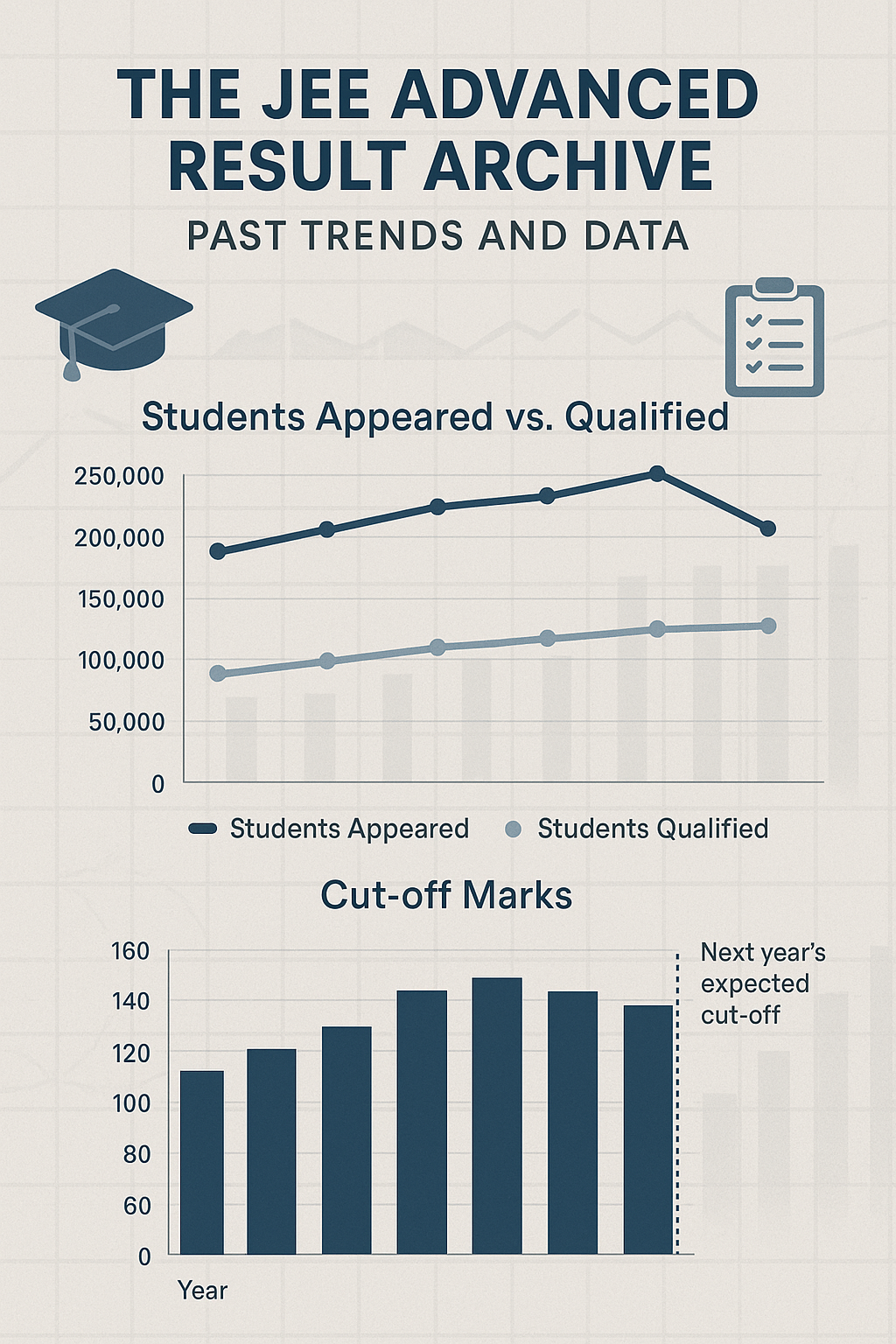
Explore the JEE Advanced Result Archive with past years’ data, insights on students appeared vs qualified, cut-off...
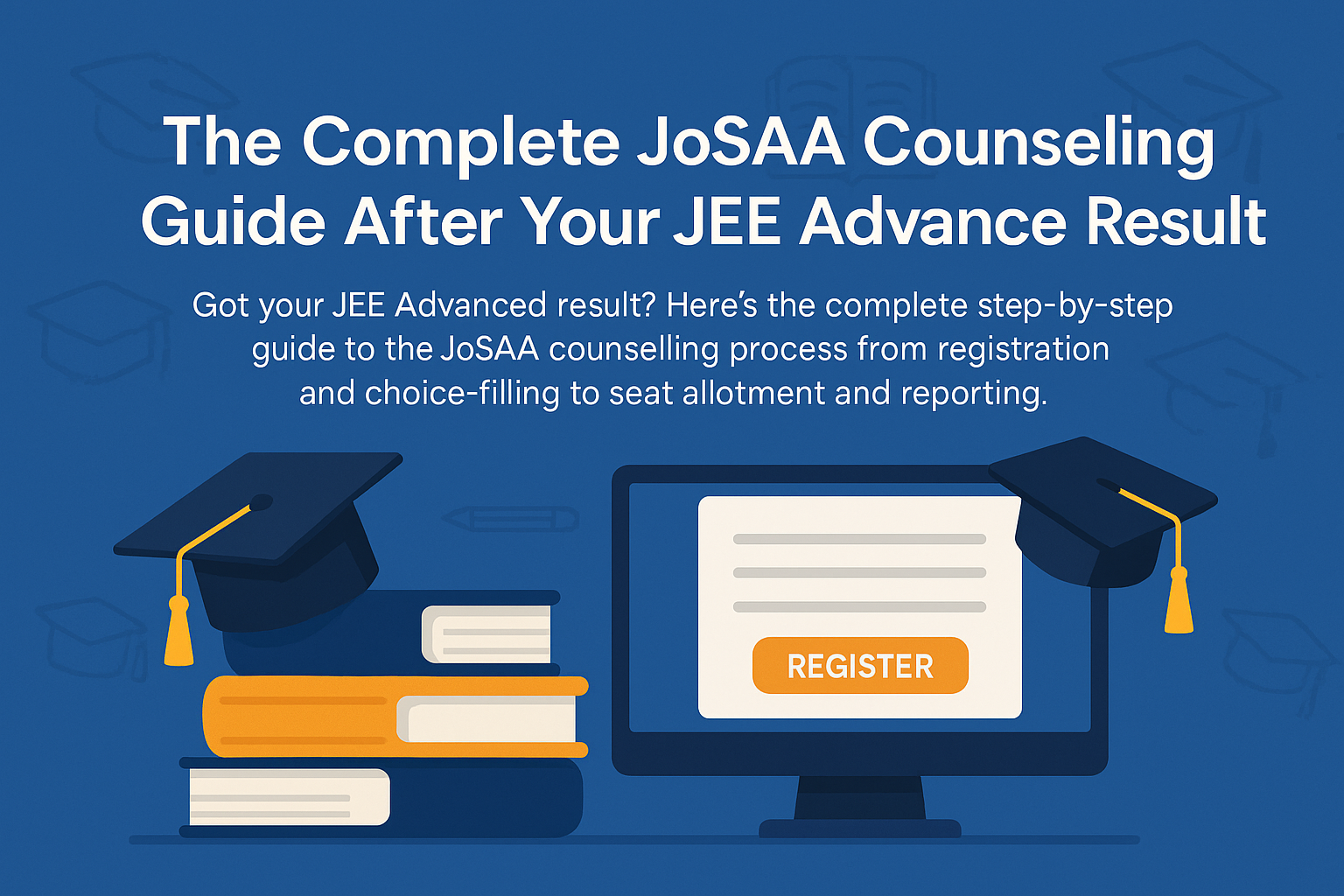
Got your JEE Advanced result? Here’s the complete step-by-step guide to the JoSAA counselling process from...
.jpg?width=500)
How many seats in JEE Advanced? Explore IIT seat distribution across all branches like CSE, Mechanical, Aerospace,...
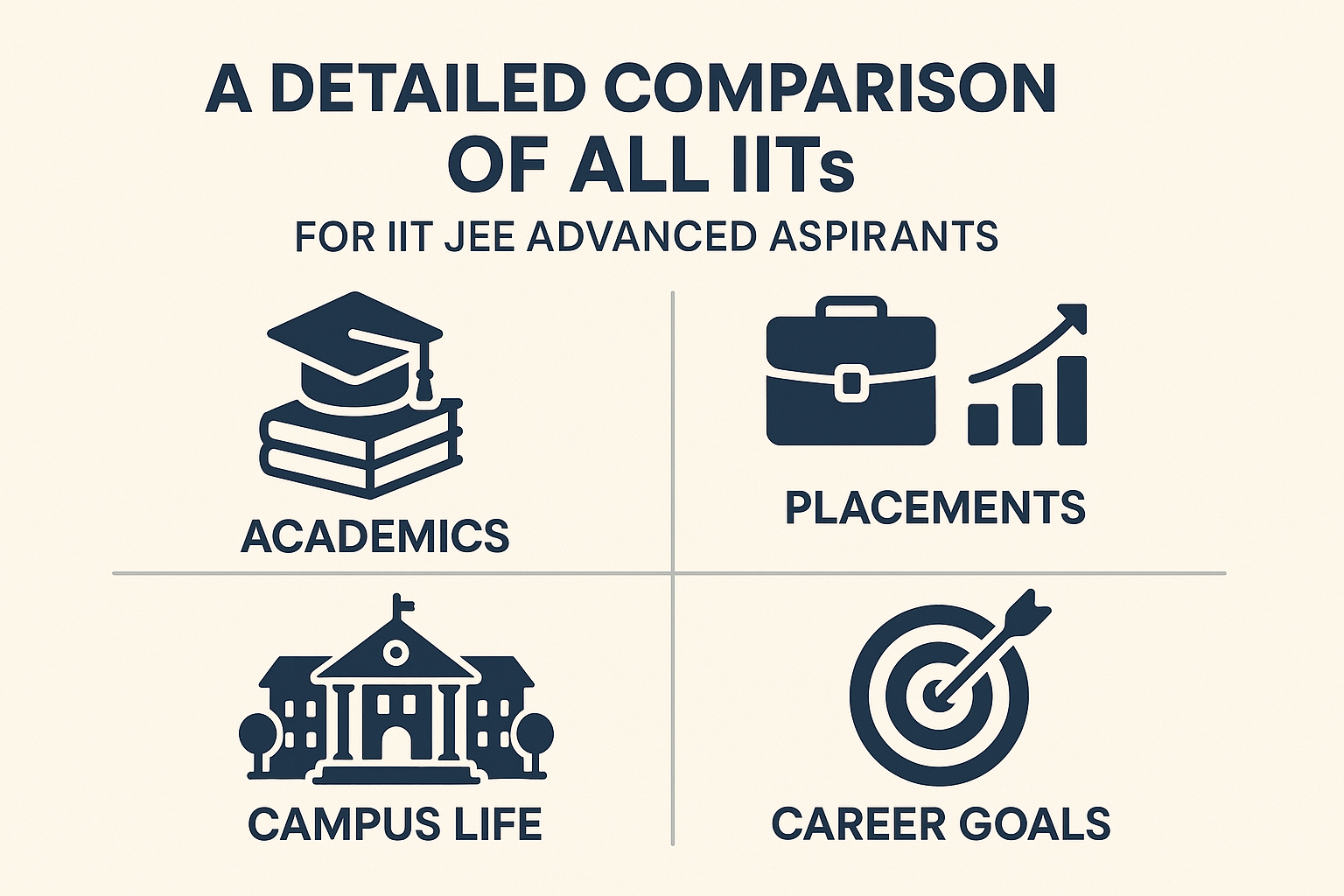
Compare all IITs for JEE Advanced aspirants. Learn about academics, placements, campus life, and find which IIT is...
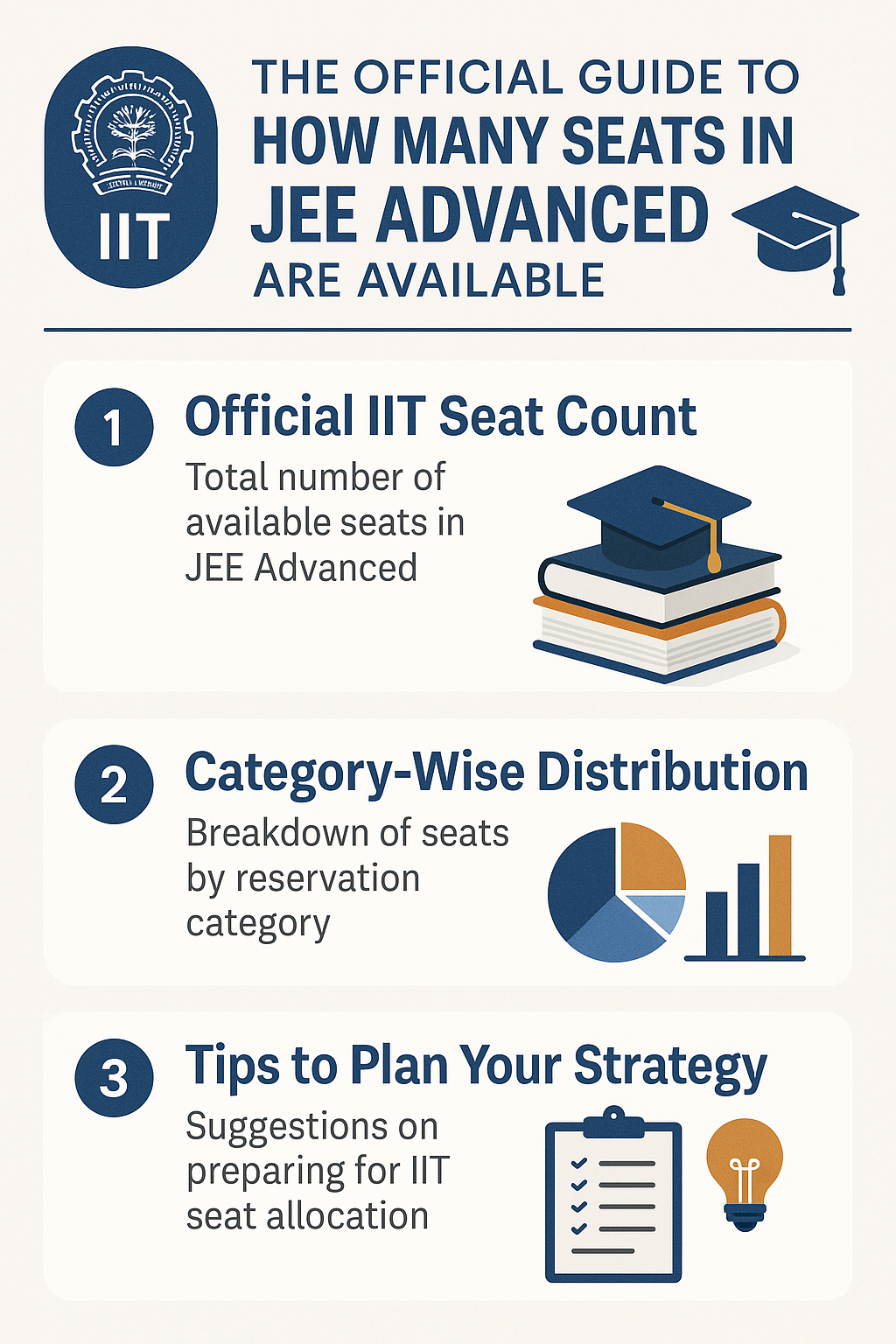
Wondering how many seats in JEE Advanced are available? Get the official IIT seat count, category-wise distribution,...
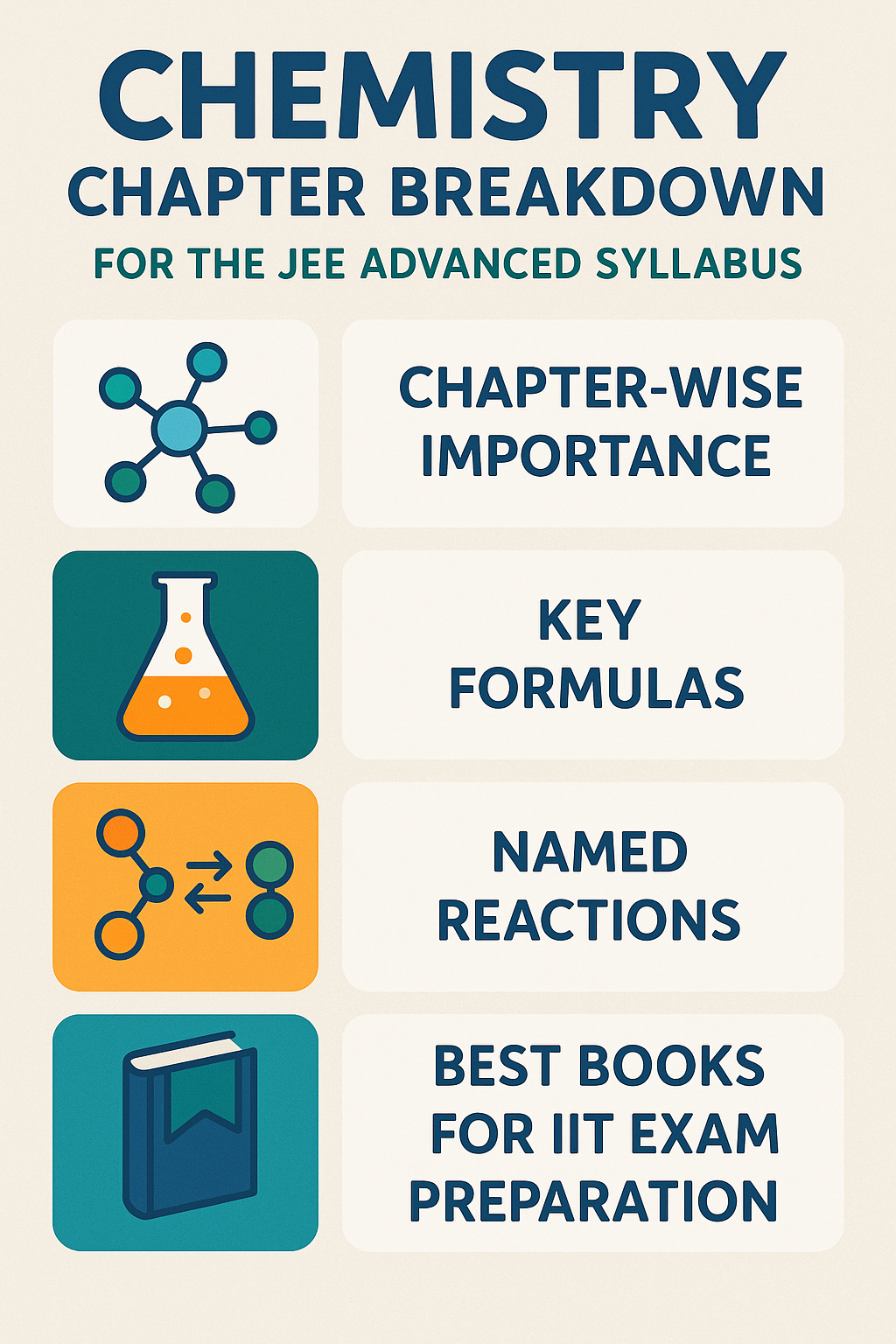
Explore the Chemistry JEE Advanced syllabus with chapter-wise importance, key formulas, named reactions, and the...
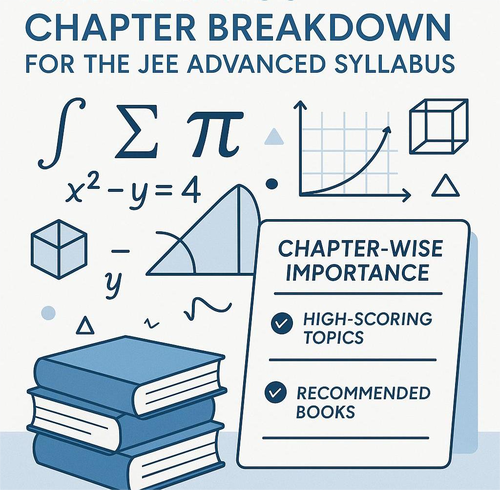
Explore the Maths JEE Advanced syllabus with chapter-wise importance, high-scoring topics, and the best books to...
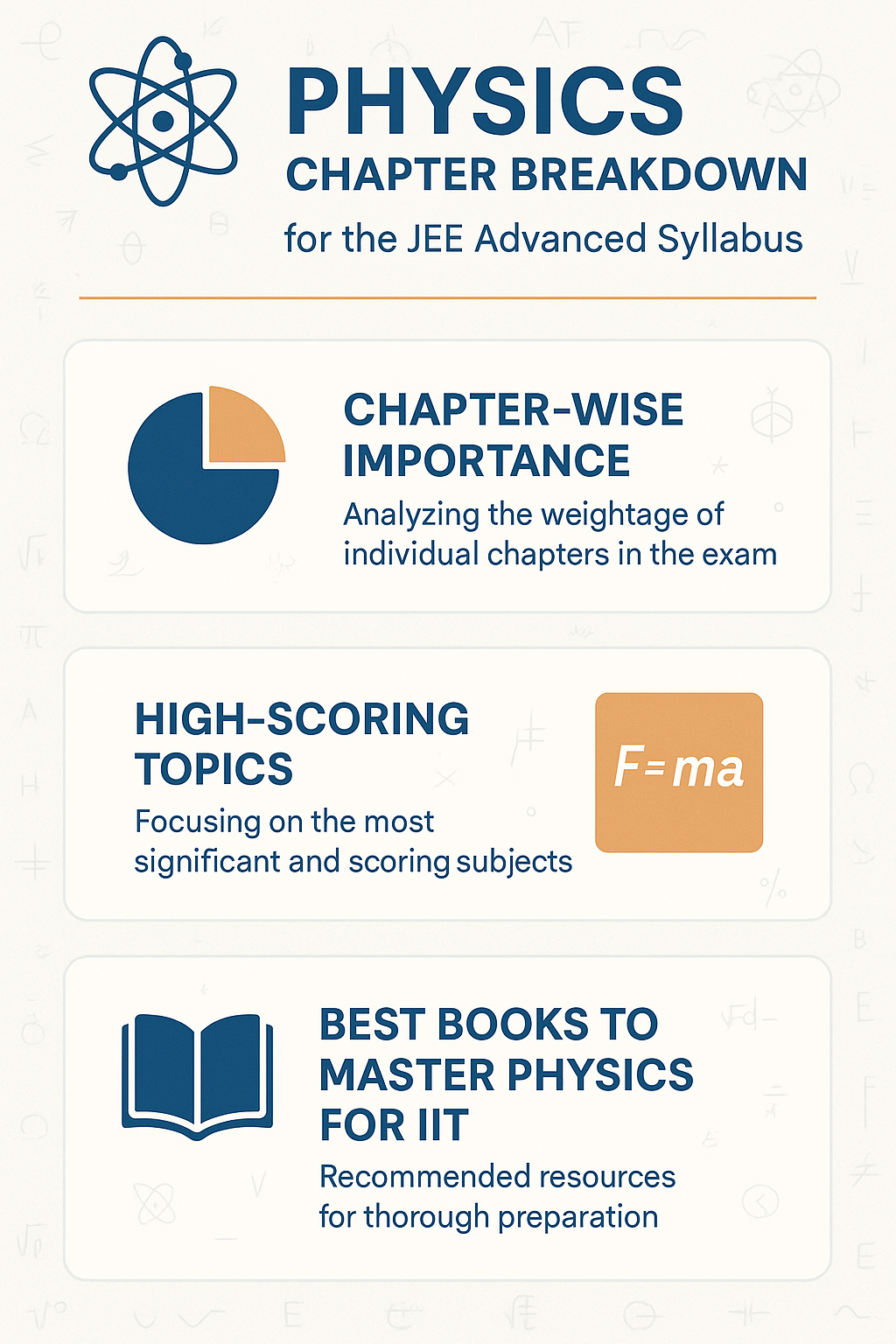
Explore the Physics portion of the JEE Advanced syllabus. Get chapter-wise importance, high-scoring topics, and the...
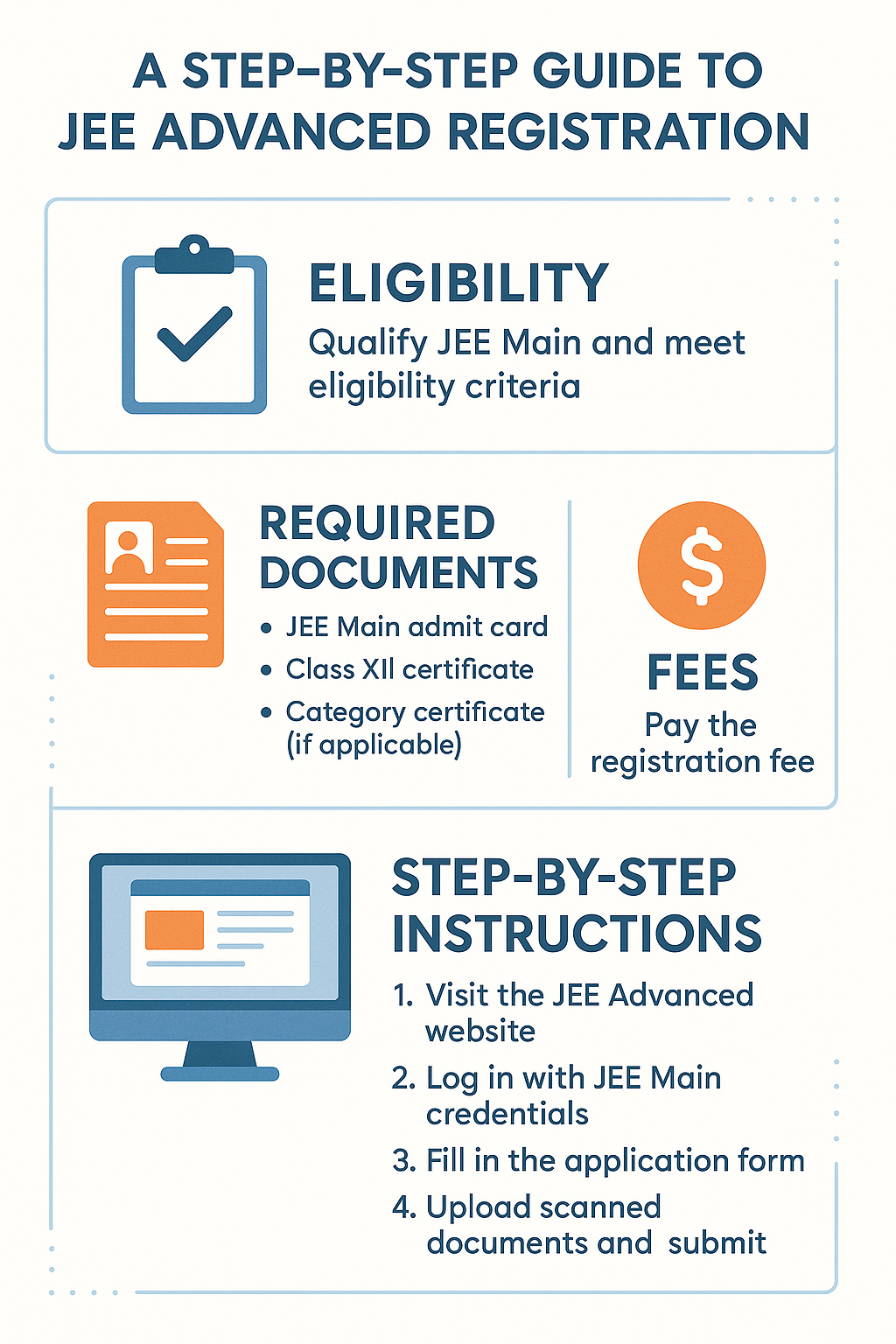
Learn the complete JEE Advanced registration process. Check eligibility, required documents, fees, and step-by-step...
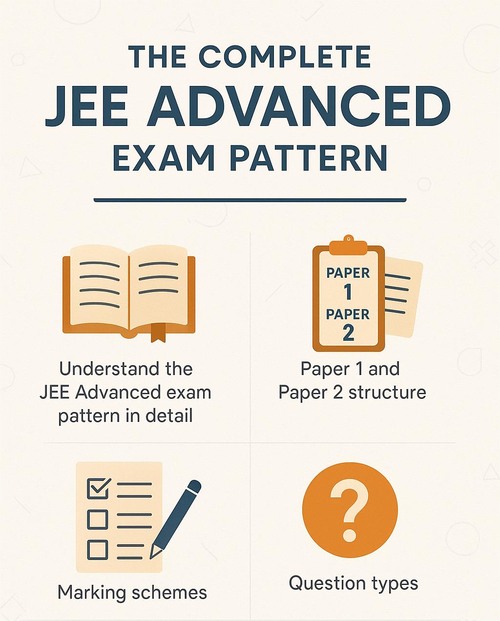
Understand the JEE Advanced exam pattern in detail. Learn about Paper 1 and Paper 2 structure, marking schemes,...
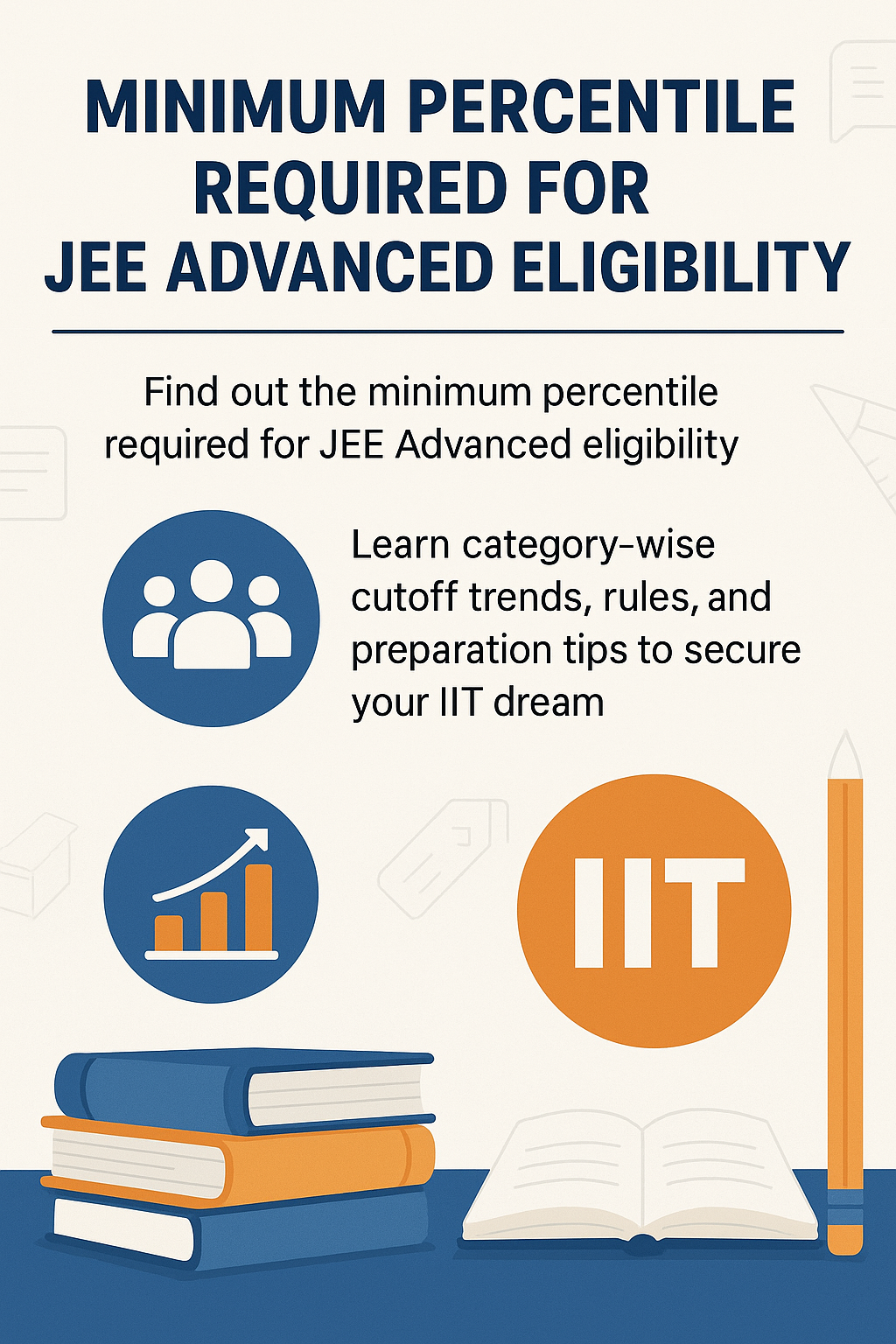
Find out the minimum percentile required for JEE Advanced eligibility. Learn category-wise cutoff trends, rules, and...
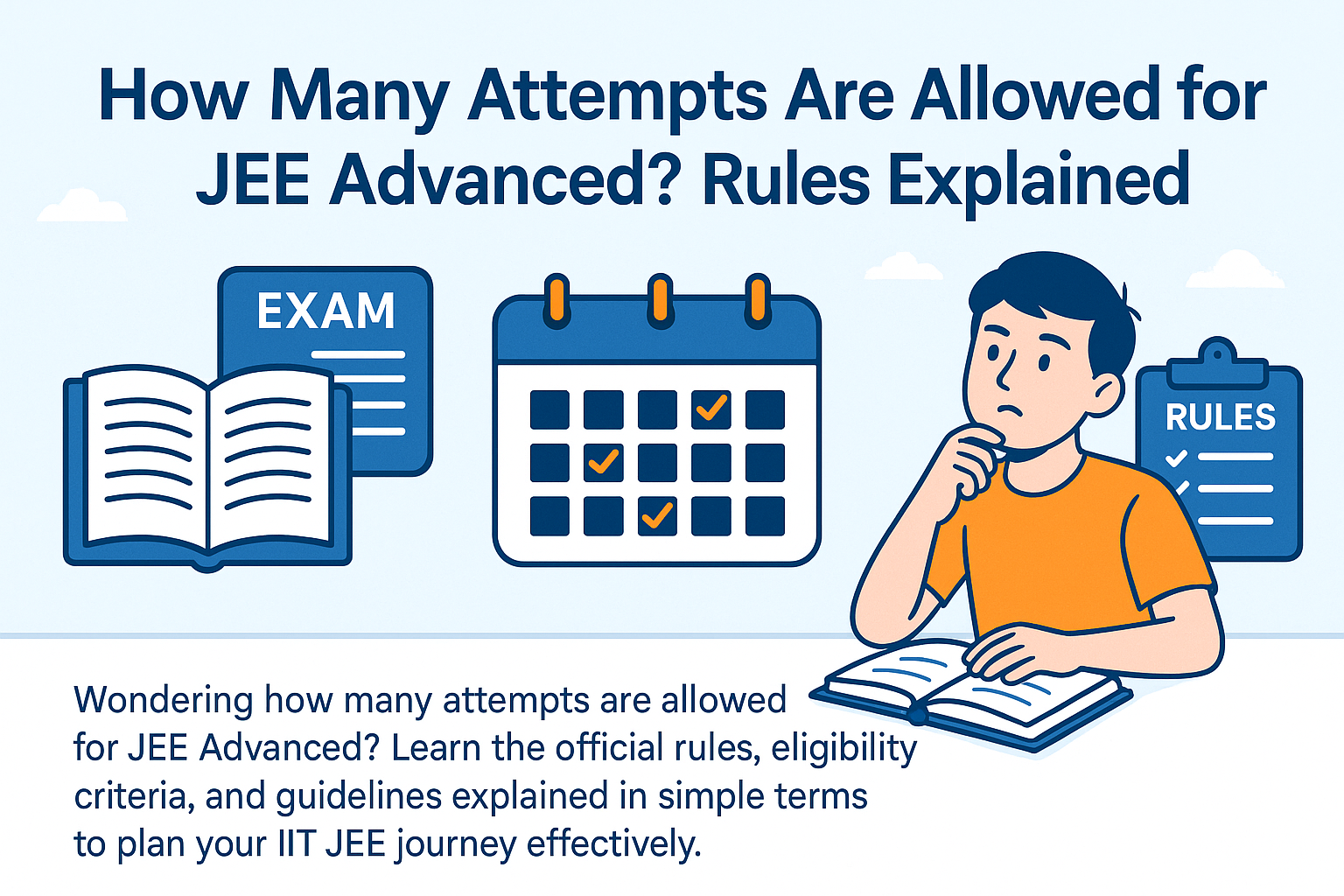
Wondering how many attempts are allowed for JEE Advanced? Learn the official rules, eligibility criteria, and...
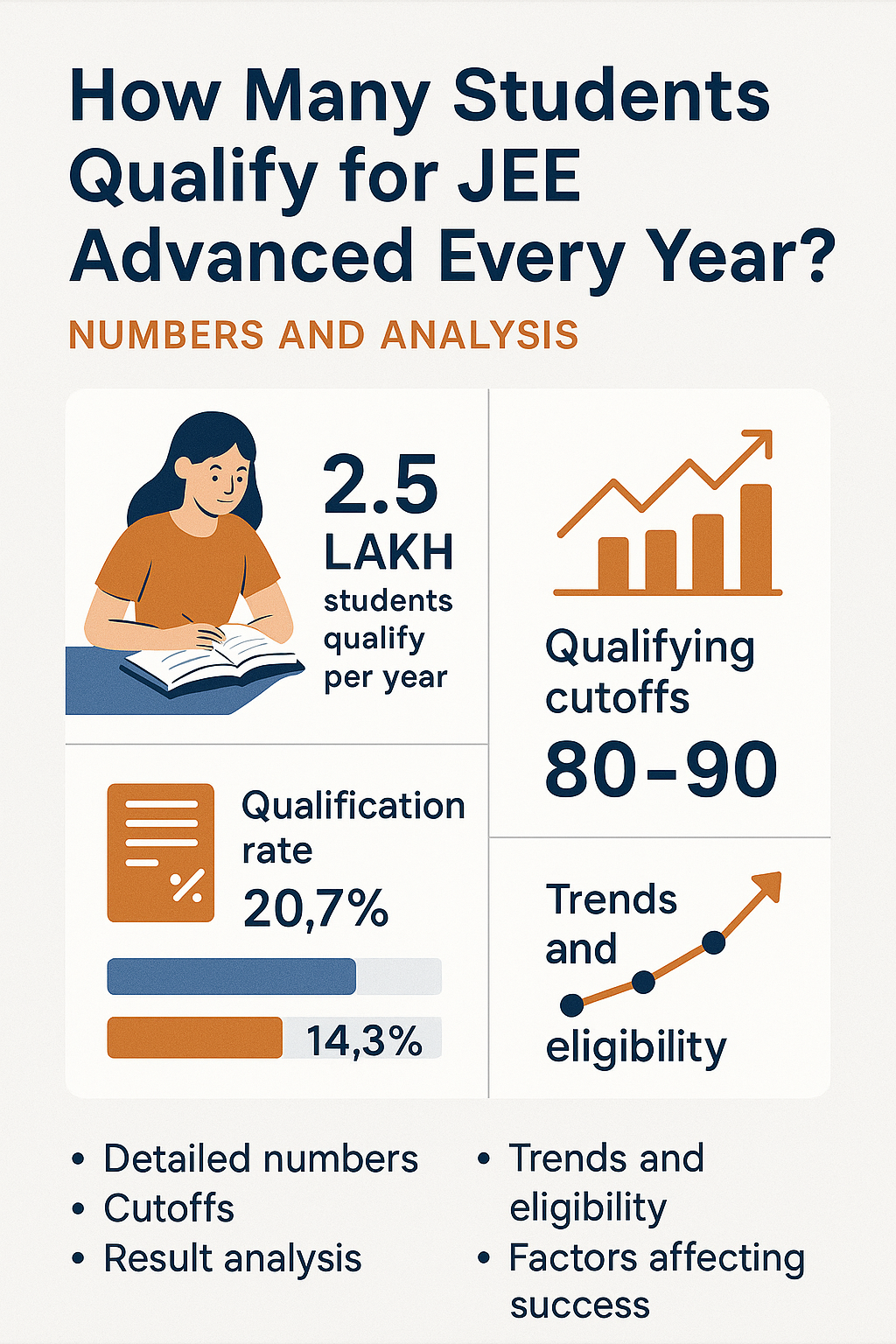
Discover how many students qualify for JEE Advanced every year with detailed numbers, cutoffs, and result analysis....

Stay updated with the latest JEE Advanced news. Get details on exam dates, registration process, results, and...

Explore the complete JEE Advanced syllabus with subject-wise topics, chapter weightage, and best books for Physics,...
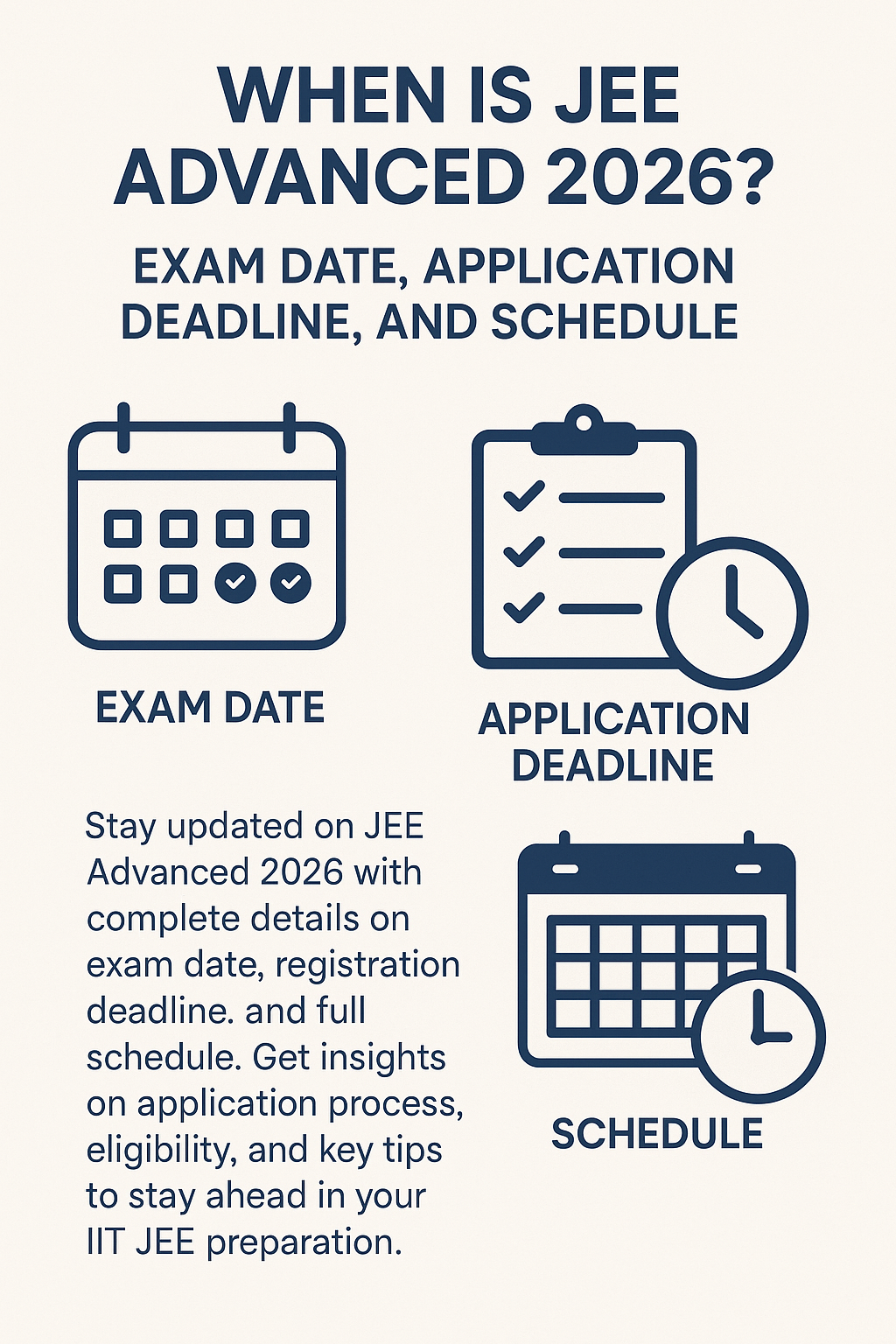
Stay updated on JEE Advanced 2026 with complete details on exam date, registration deadline, and full schedule. Get...
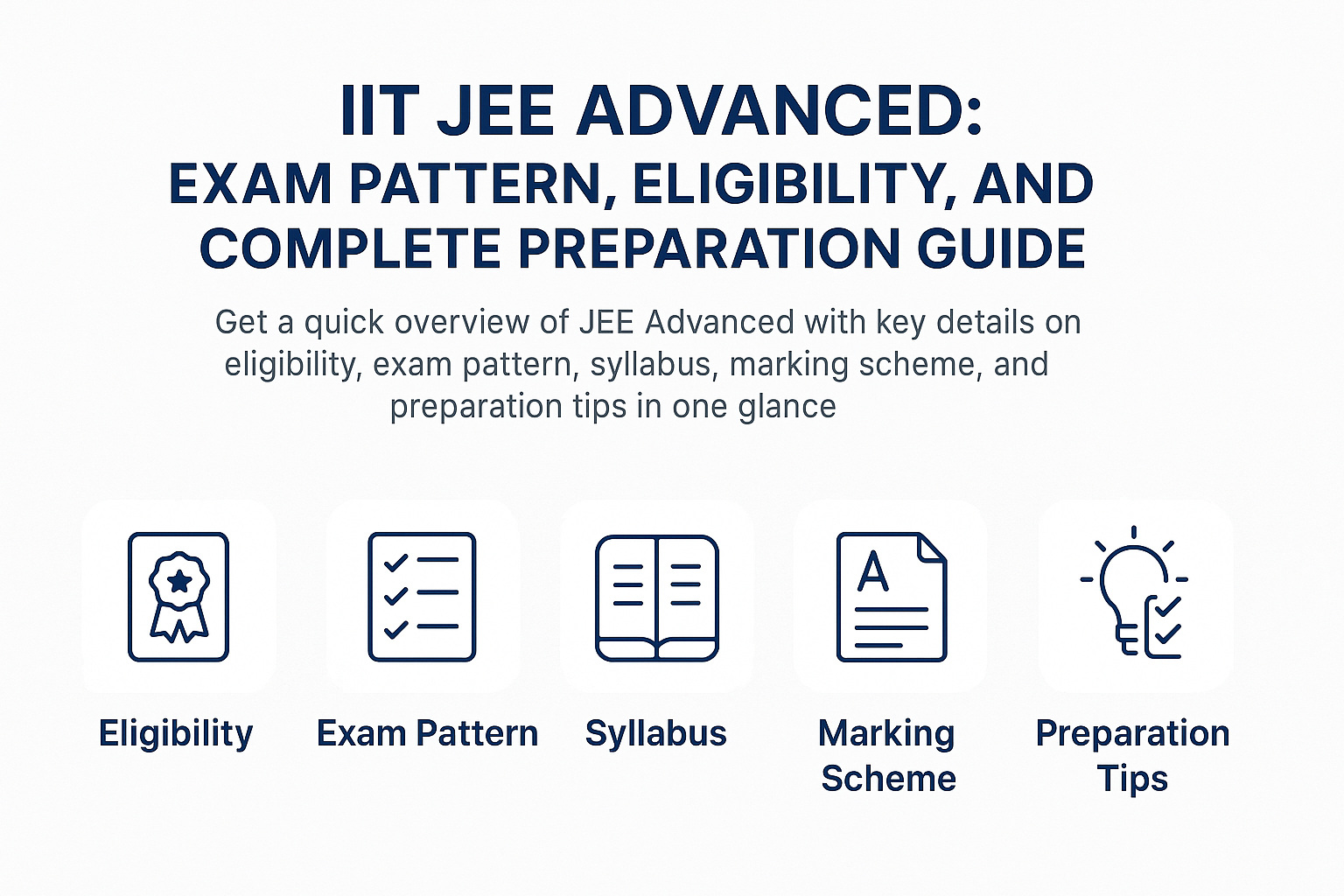
Get a quick overview of JEE Advanced with key details on eligibility, exam pattern, syllabus, marking scheme, and...
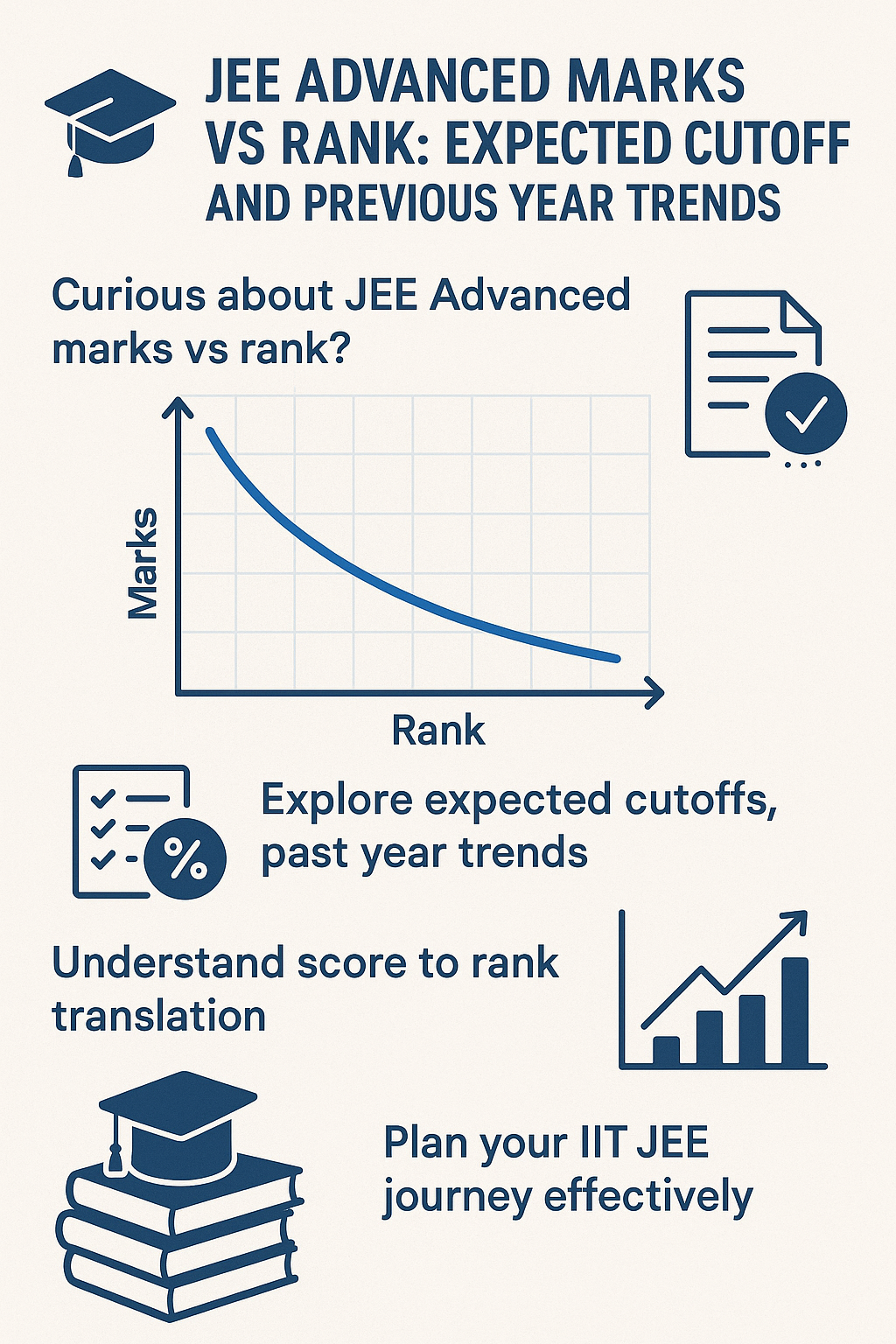
Curious about JEE Advanced marks vs rank? Explore expected cutoffs, past year trends, and how your score translates...
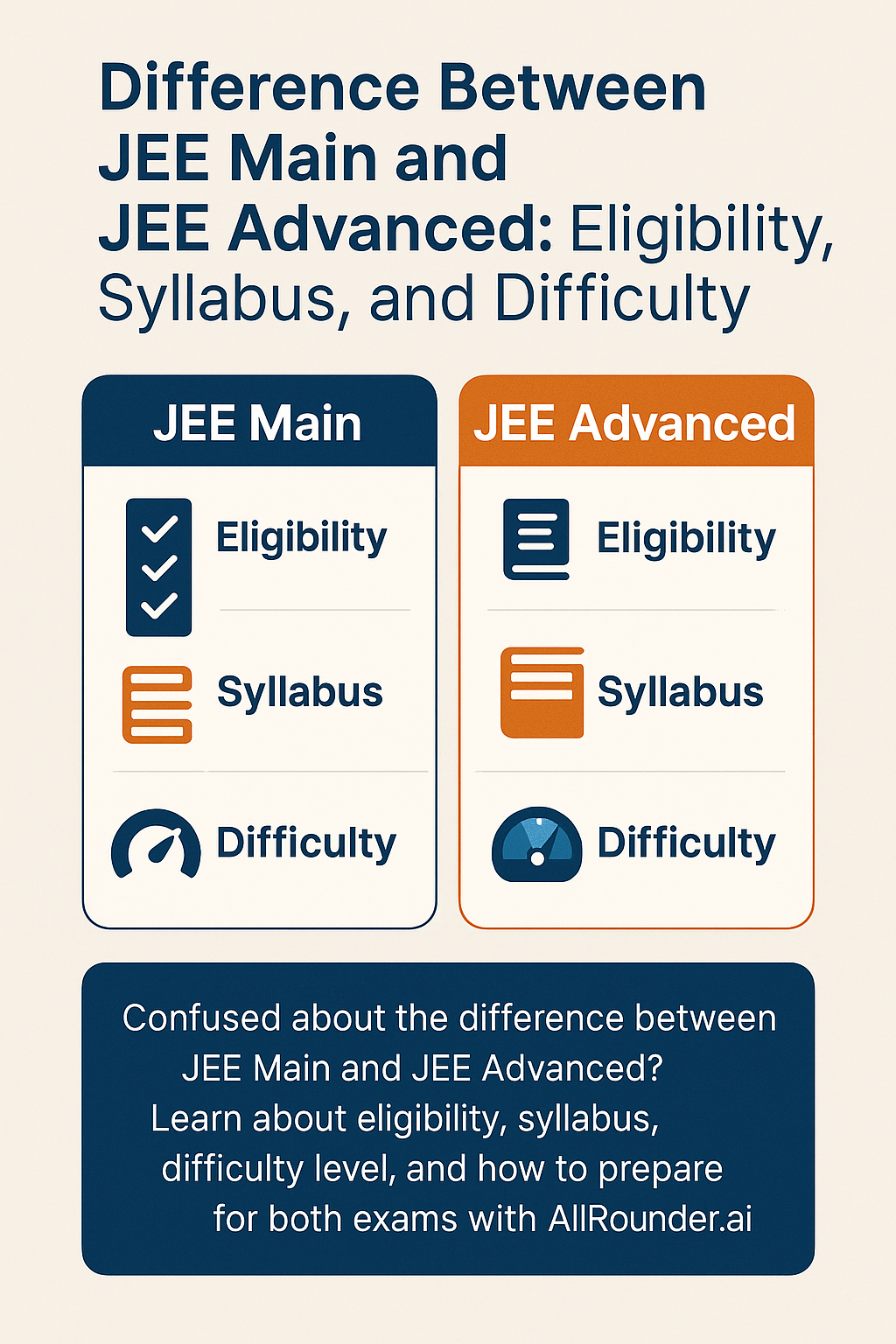
Confused about the difference between JEE Main and JEE Advanced? Learn about eligibility, syllabus, difficulty...
Resources
-
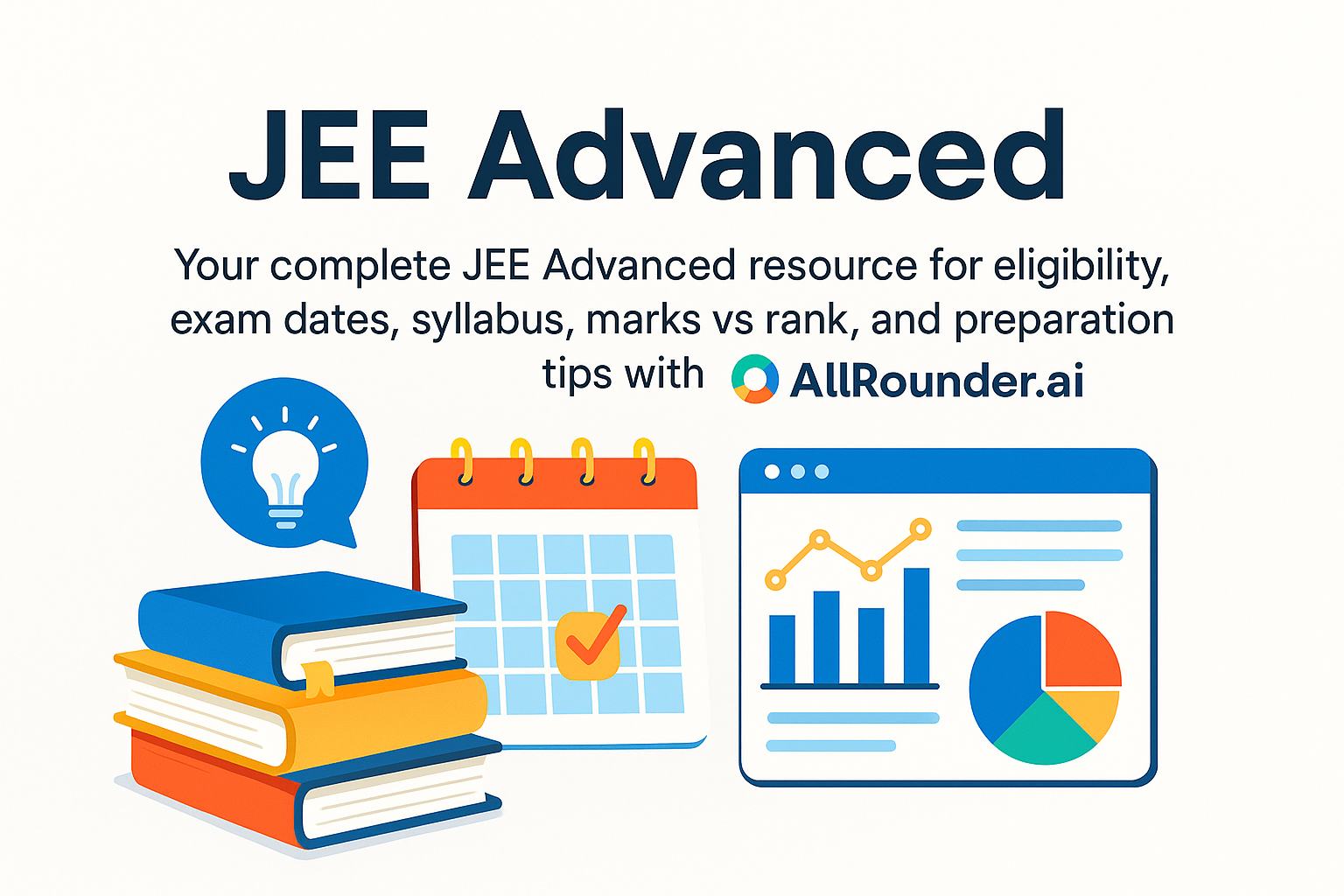
Your complete JEE Advanced resource for eligibility, exam dates, syllabus, marks vs rank, and...
-
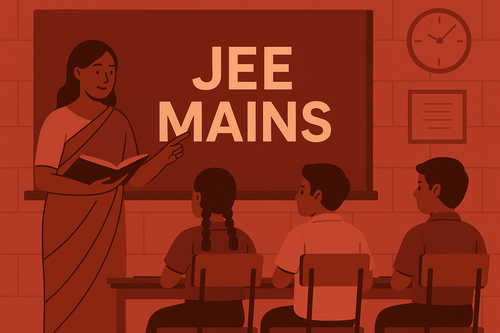
Understand the entire JEE Main process, from application and eligibility rules to the exam...
-

Explore the IB Board – a global curriculum emphasizing holistic, student-centered learning...
-

Learn about CBSE – India’s national school board offering a standardized curriculum, NCERT...
-

Explore everything about the ICSE board – its curriculum, subjects, exam format, and academic...

